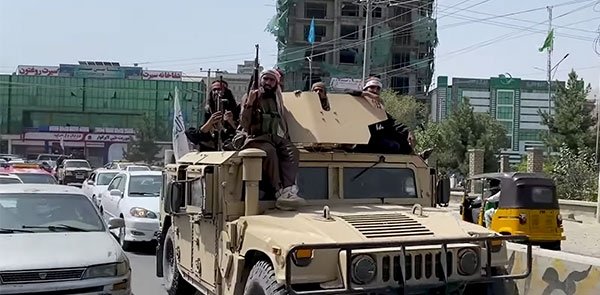|
Monday, Nov. 1 // 12–1:30 p.m. (ET)
Memorial, Russia’s primary guardian of historical memory of the Soviet political repressions and a preeminent human rights defender, finds itself under growing pressure and harassment from the authorities. Many fear that the pandemic-related shift online of its beloved annual Return of the Names commemoration will translate into permanent reality. At this event, we will talk about the latest developments at Memorial, see photos from its new exhibit on women at the gulag, hear the stories behind them, and discuss Memorial’s future.

Monday, Nov. 1 // 2–3:00 p.m. (ET)
The Fall issue of the Wilson Quarterly examines human migration around the world, its multiple causes, and solutions to what is becoming an urgent and growing crisis. Several contributors join Wilson Center Director, President, and CEO Ambassador Mark Green in conversation to launch the issue, which includes articles, essays and an interactive feature, from global leaders, journalists, scholars and refugees themselves.

Monday, Nov. 1 // 4–5:30 p.m. (ET)
Linda Colley discusses the aims and methods involved in her recent book The Gun, the Ship, and the Pen: Warfare, Constitutions and the Making of the Modern World (2021), and comments in retrospect on some of its arguments about the connections after 1750 between patterns of conflict, the exponential spread of written constitutions across continents, and the progress (and limits) of rights.

Tuesday, Nov. 2 // 10–11:30 a.m. (ET)
The U.S. withdrawal from Afghanistan and the Taliban’s return to power have major implications for the Middle East. What do developments in Afghanistan mean for the interests of countries in the Middle East and their relations with the United States and Afghanistan? What do these developments mean for Islamist political parties, extremist groups, and civil society (including women’s rights groups) in the Middle East? And what do they mean for U.S. human rights and democracy promotion efforts in the Middle East?

Tuesday, Nov. 2 // 1:30–3:00 p.m. (ET)
In Precarious Democracy: Ethnographies of Hope, Despair, and Resistance in Brazil, former Wilson Center fellow Benjamin Junge and his co-authors provide nuanced ethnographic portraits of the lives and concerns of Brazilians “far from the halls of power,” helping us better understand the political and social forces sweeping the country.

Wednesday, Nov. 3 // 2–3:00 p.m. (ET)
The risks posed by climate change, and in particular climate’s impact on marginalized communities, have further exposed the linkages between climate change, environmental degradation, racism, and social injustice. Often missing from conversations focused on these injustices, however, is an awareness of the agency and knowledge that Indigenous communities bring to climate response. Join us for a discussion with leaders who are working to incorporate Indigenous knowledge into climate decision-making.

Thursday, Nov. 4 // 9–10:00 a.m. (ET)
This public convening of global experts will focus on best practices, innovative solutions, and supportive policies to ensure women have equitable opportunity to financial success, health and safety while at work, and that caregiving is finally front and center in policy discussions. The insights and solutions from this event will be used to inform our upcoming whitepaper, The Lasting Effects of COVID-19 on Women’s Health and Economic Participation.

Thursday, Nov. 4 // 1–4:30 p.m. (ET)
Presented in conjunction with the Canada-United States Law Institute (CUSLI), this year’s CUSLI Annual Experts’ Meeting focuses on the increasing challenges faced by policymakers and business leaders on United States and Canadian supply chains in light of China’s evolving domestic and international outlook. Speakers and panelists will examine the operational, policy, legal, and regulatory issues faced by United States and Canadian government and business leaders as they grapple with the tough economic, national security, human rights, and foreign policy issues that define the discussion around China’s role in North America and on the world stage at large.

Thursday, Nov. 4 // 1–2:00 p.m. (ET)
This discussion will feature the new book, Russia Resurrected: Its Power and Purpose in a New Global Order (Oxford University Press, 2021) by Stanford Professor and Mosbacher Director of the Center on Democracy, Development, and the Rule of Law at the Spogli Institute for International Studies. This conversation will explore the “declinist paradigm” against which Professor Stoner argues in her book and the implications of “Russia Resurrected” for U.S. foreign policy in the first year of the Biden administration.

Thursday, Nov. 4 // 1–2:00 p.m. (ET)
On November 7, Daniel Ortega will run effectively unopposed for a fifth term in office following the arrest of over 150 political prisoners, including seven presidential contenders. Join the Latin American Program and the Atlantic Council’s Adrienne Arsht Latin America Center as we delve into the implications – for Nicaragua, Central America, and the United States – of the upcoming electoral process and the increasing risks around Ortega’s regime in 2022 and beyond.

|





